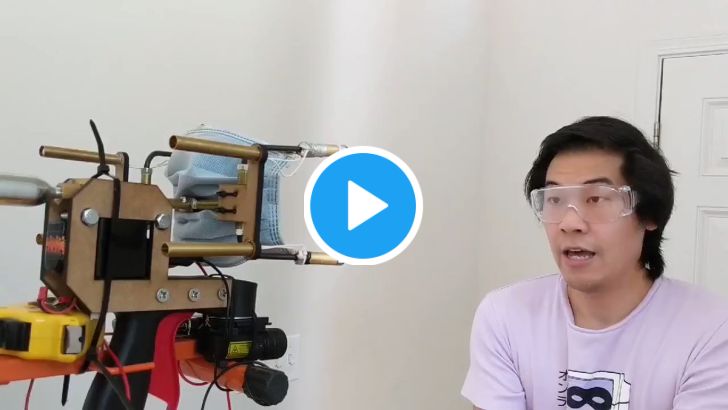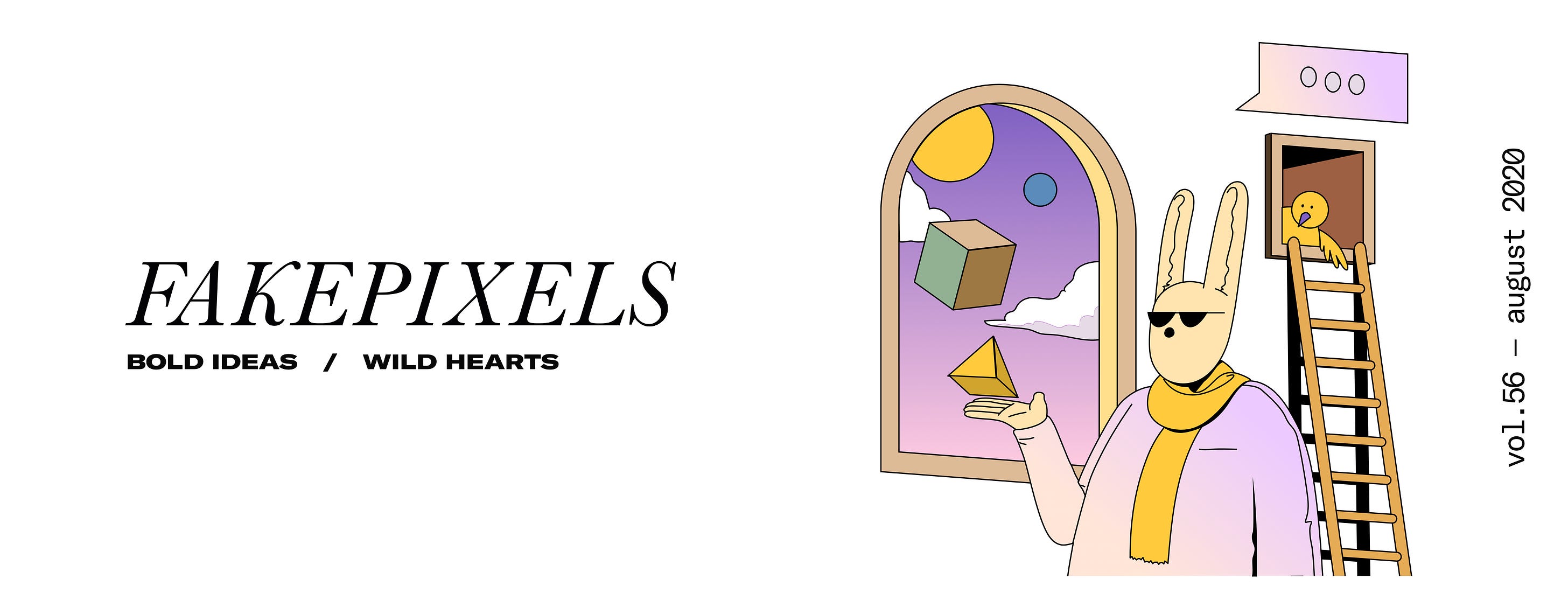 |
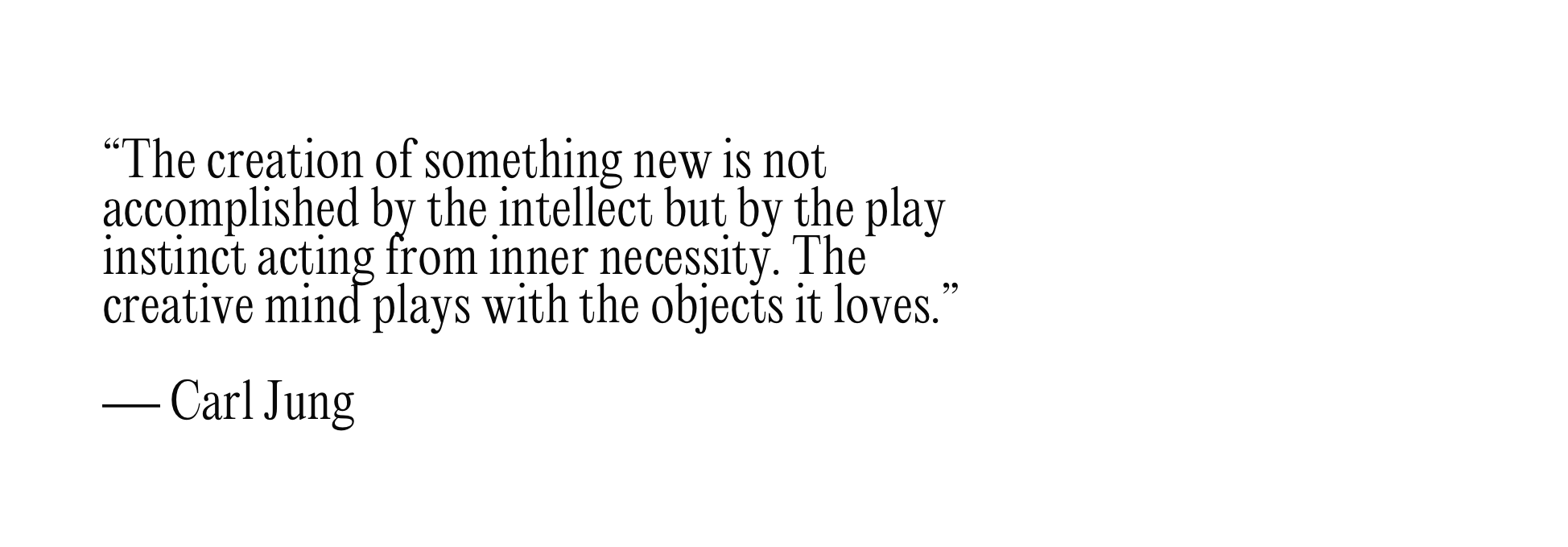 |
Happy Sunday! I’m in my NYC studio apartment, listening to Old Bone (Jim-E Stack Remix) by Wet that is playing sometime in your past, which is also my present, writing this.
What we share is Fakepixels, a space for honest inquiry, bold ideas, and creative optimism. Here, we are not afraid to uncover the invisible forces that reframe the realities we once knew.
 |
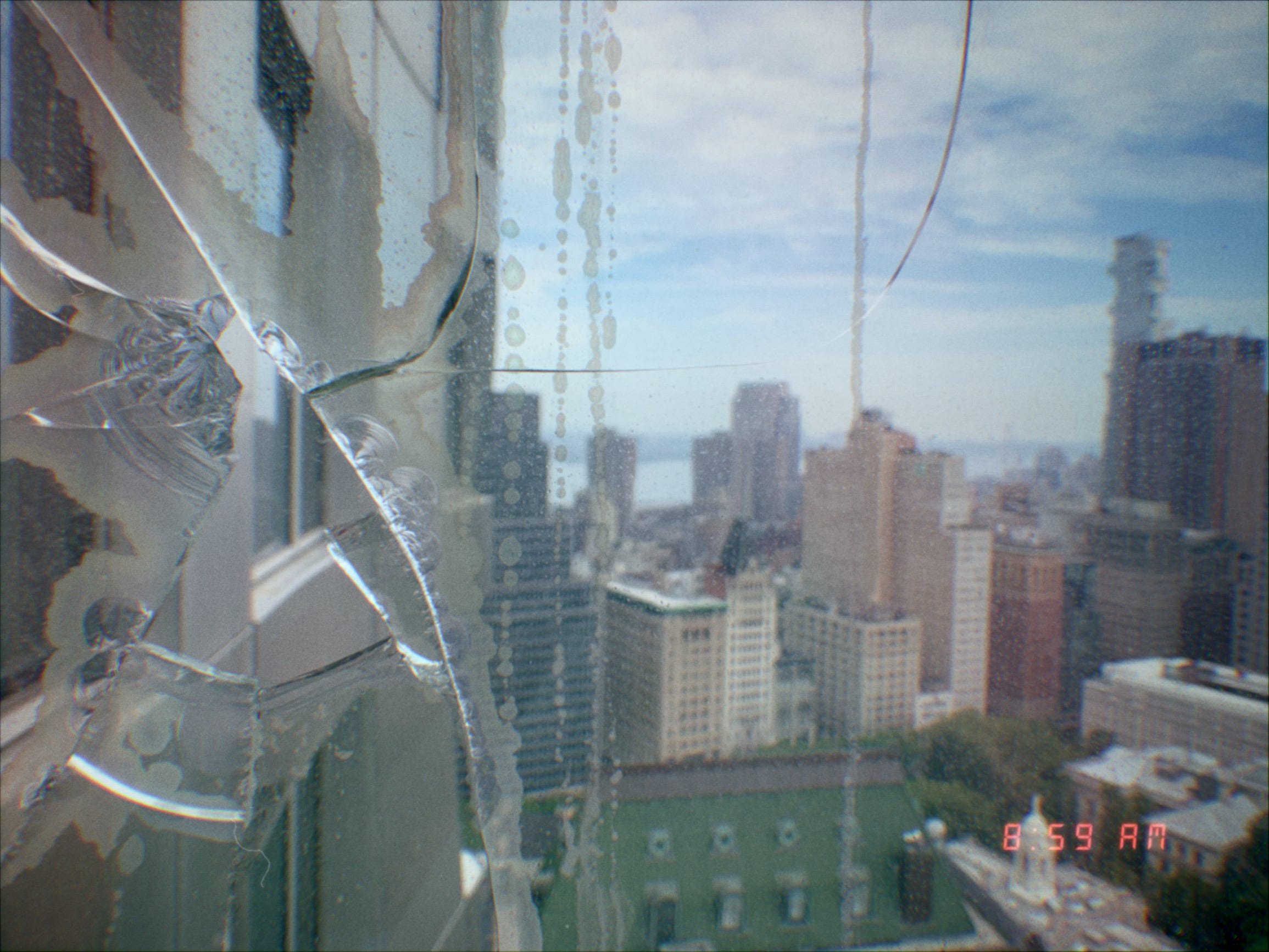 |
Taken from my window this morning.
I woke up early. A tiny hole on my glass window now has developed from a stem cell to a full-grown lizard with a long spine. The cloud sparkles gold and looks as though they leaped from my dream up into the sky. I observed the city through the cracks of the lizard's spine before I got up.
Our kind neighbor knocked on the door a month ago when the hurricane arrived in the city and warned us about the crack. That was one of the few social interactions we have with strangers these days. The man was fulfilling his sense of duty. The least we wanted to do is messing up the things within our periphery of control.
Yet somehow "getting my window fixed" has been camping on my to-do list for weeks now. I dragged the task to the bottom as if it's the least important thing I need to worry about right now, but not without an acute awareness of danger.
For one, the danger doesn't feel nearly as imminent as the danger of the daily news reported through the stoic yet engrossing voice of my Google Assistant. The risk imposed by the window crack seemed too comfortably predictable to trigger the alertness we've developed from the unusual events that few of us foresaw. The fat tail of possible events has made changing the default state of being. I could be in another city by the end of the year and never return to this studio again.
The digital hubs that were once my escape are now the loci of my fractured identities, where people know me by different names and where my family expects me to answer their questions honestly. On the one hand, they are apprehensive about my safety, but I think they are also hungry for the truth that the media on neither side would provide. However, when I report what I see and how I feel, there's always a vague sense of slight dissatisfaction that my perceptions didn't align with the stories they've heard.
While the physical hubs that previously only existed in abstraction are now parading down the streets where I live, I navigated through banners of "F**K OUT" and crowds wearing no masks on my way to the grocery store. I once thought these were political parades, but I couldn't discern their target. I could sense that the type of anger that isn't merely partisan, but the fear and desire to make the invisible visible. The crack on my window, in some way, is making the invisible visible. It somehow reminds me of the crack I see every day when I walk from Financial District to West Village on West Broadway, the chasm between the main road and the curbside: on the road cars are escaping from the city, and on the curbside people are either sipping Negroni under a branded umbrella or sleeping on the ground trying to stay alive.
When I walk, I sometimes feel like I have to pick a side. The contrasting realities operate in parallel but also crash at unexpected times, and one event never predicts the next. Last weekend I ordered an Acai bowl at an Australian brunch shop with a friend because I was hungry for predictability and normalcy. A woman in the red dress and red lips sitting next to us had just started reading Normal People by Sally Rooney. A delicate bookmark was placed somewhere in the first chapter. She looked fit and tanned and elegant as if she just returned from a vacation in Paris.
In clothes so faded that the form and colors became indiscernible, a man stopped and whispered something to the waitress who was holding three plates of avocado toasts with runny eggs shivering on top. The waitress said something to the man and gave him gentle nods, apologizing for something she couldn't offer. The man walked away.
"Does he want food? If he wants food, I can get him food!" The red dress woman asked assertively, as though if the waitress declined her offer it would've insulted her.
"If he just wanted food. We would've given him food."
"What does he want then?"
The plates were getting heavy on the waitress's arms, and she rushed away to serve the toasts without answering the question. The red dress woman, in her sunglasses, shook her head and started jotting something down on a notebook.
A writer, maybe. I let my imagination run wild. Perhaps a piece will appear on one of the columns she wrote about what happened to her just now on the Internet, where she would make her sense of justice heard. Or maybe she was journaling her truth or how she was feeling at the moment.
Regardless I was deeply touched by her decision to participate. It's then that I started to believe that hope doesn't end when we see despair. Hope ends when we avert our gaze. Similarly, civilization doesn't end when it is destroyed but ends when we stop documenting.
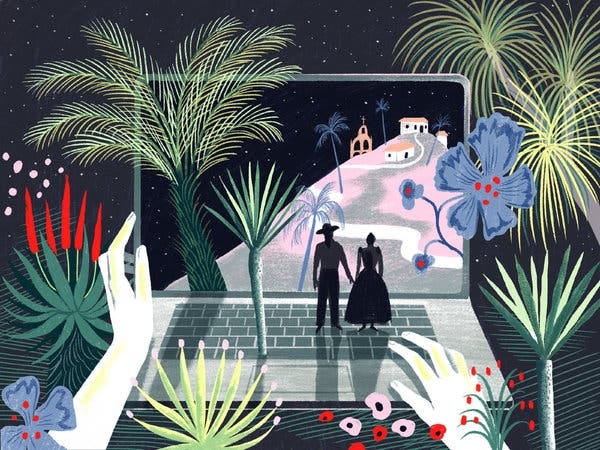 |
Illustration | Eleanor Taylor
In the final pages of One Hundred Years of Solitude, Márquez highlights the paradox of how human's sense of agency simultaneously enables and hinders our capacity to predict the future, when the protagonist finally finished the translation of the secret manuscript that predicted his own fate:
Before reaching the final line, however, he had already understood that he would never leave that room, for it was foreseen that the city of mirrors (or mirages) would be wiped out by the wind and exiled from the memory of men at the precise moment when Aureliano Babilonia would finish deciphering the parchments.
Instead of interpreting Marquez's text as fatalist, it's also possible to view it as precautionary — a case study of identifying the circularity of humans' behavioral patterns and the potential exists where we can escape free from such inertia. The Internet distributes the parchments on which many histories are written. The fates of the Hundred Years of Solitude can now be simulated a million times all at once. With some multivariate manipulations, we can easily land on infinite sets of outcomes. One of these experiments was visualized beautifully by David Roodman, a senior advisor at Open Philanthropy.
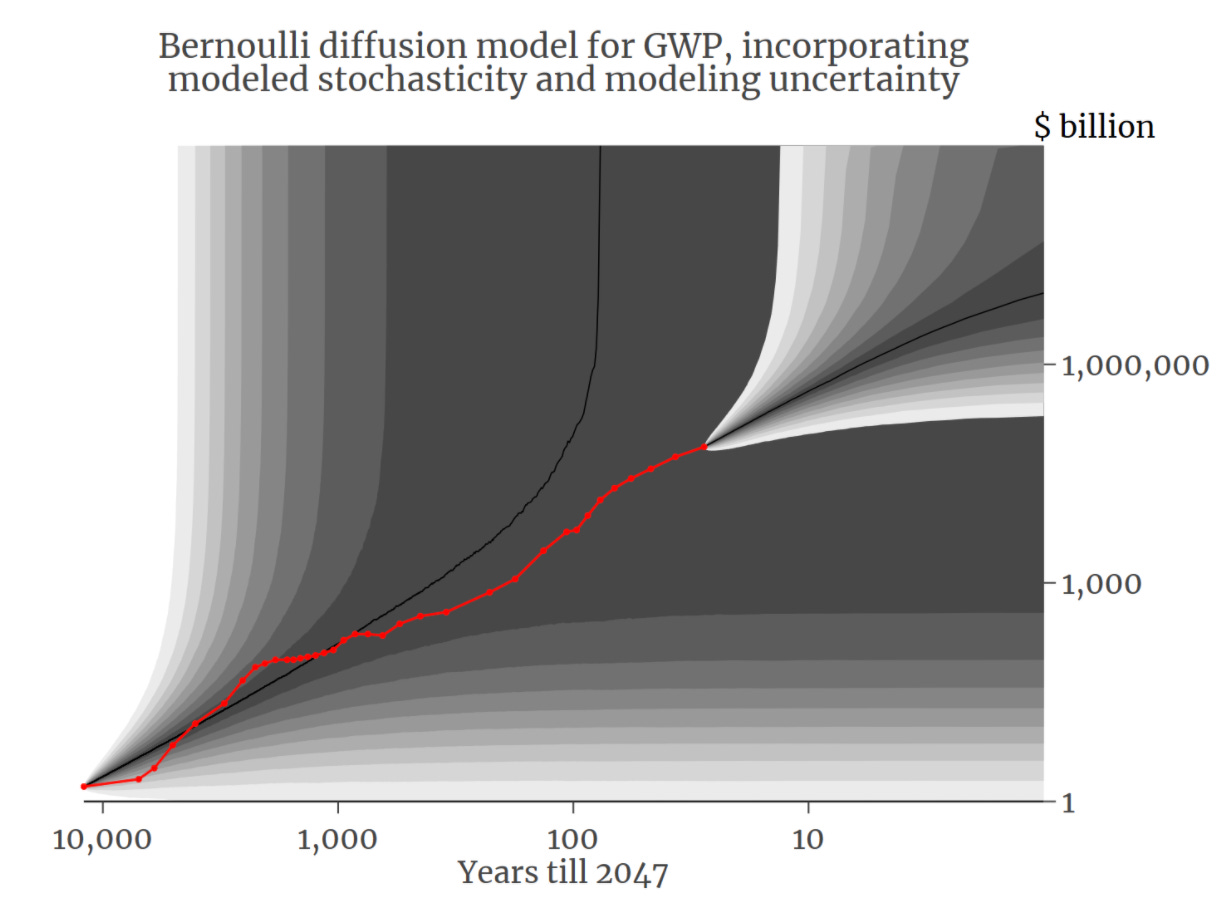 |
Note: GWP stands for Gross World Product, a rough proxy for the scale of human enterprise
He concluded after a series of experiments:
First, if the patterns of history continue, then some economic explosion will take place again, the most plausible channel being AI. It wouldn't reach infinity, but it could be big. Second, and more generally, I take the propensity for explosion as a sign of instability in the human trajectory. Gross world product, as a rough proxy for the scale of the human enterprise, might someday spike or plunge or follow a complicated path in between. The projections of explosion should be taken as indicators of the long-run tendency of the human system to diverge. They are hinting that realistic models of long-term development are unstable, and stable models of long-term development unrealistic. The credible range of future paths is indeed wide.
Even the best model of history presents us only with infinite possibilities for interpretation. This is an important lesson when we are often so tempted to make qualitative decisions from crude data. The tendency to ascribe cause and effect to the past and make panic-driven deductions about the future not only leaves us vulnerable to perceptual blindness but also limits our imagination about what's possible. Any data set that is missing a meaningful proportion of the world is painfully flawed, and it was based on those data sets that our systems have been designed for the past century.
When I get asked by friends what my goal is for the next year, and whether I have any advice for what they should do with their life, I find it difficult to answer as the metrics I want to measure success have evolved meaningfully. I look outside the cracked window, humbled by the fractured world I see that is beginning anew.
Look anywhere, everywhere, just not away.
That's what I told them, and to my own reflection on the glass when nights outside the window feel so long and days so short.

The sky is not the limit.
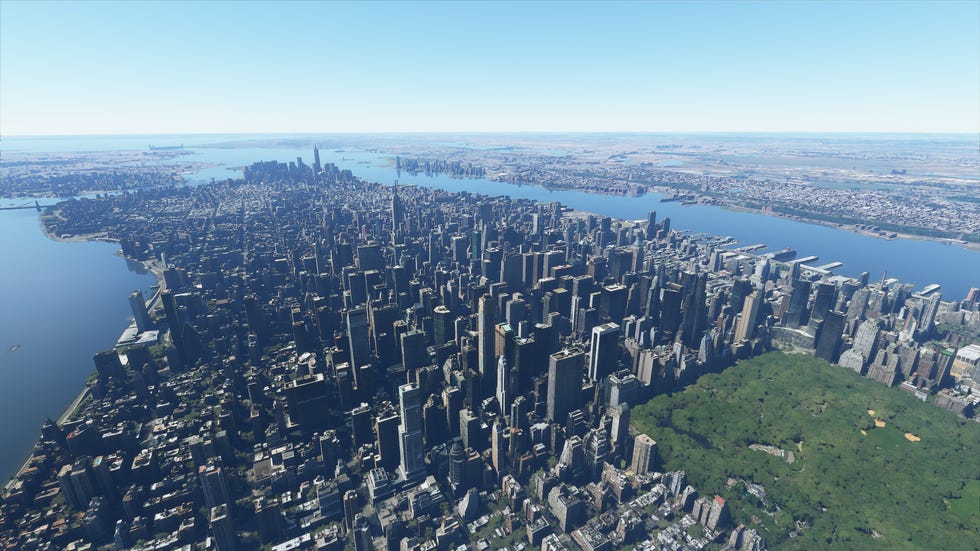 |
Above Manhattan in the new Flight Simulator | Screenshot: Seth Schiesel
Microsoft Flight Simulator is everyone’s childhood dream but actualized now in an unexpected way. We can now go to places that they will likely never visit as a civilian, and yet as we gaze out the window during the final descent into places like Jacobabad, Pakistan, or Thumrait, Oman, we can imprint that as a part of our memory as if we have been there.
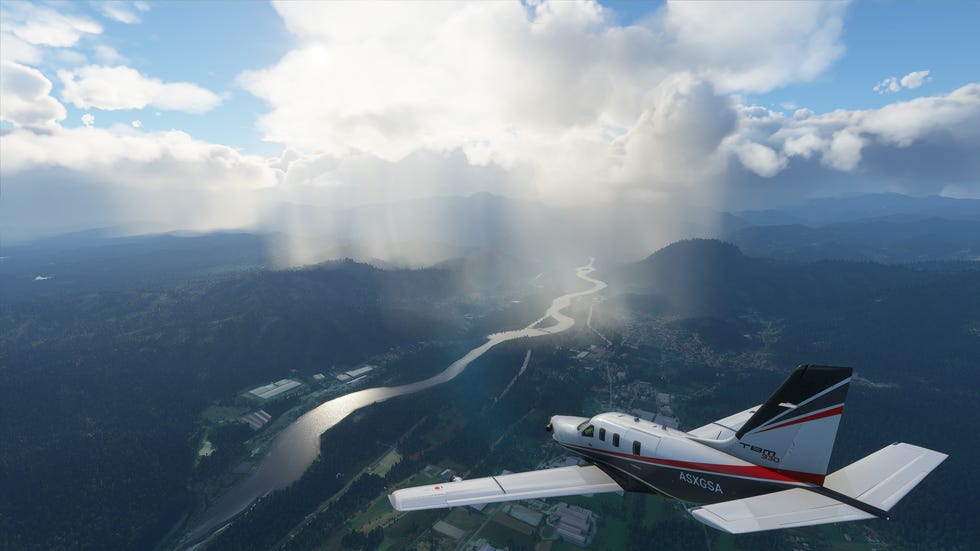 |
A summer rain shower in the Alps in Flight Simulator | Screenshot: Seth Schiesel
Microsoft created its own gaming operation more than 20 years ago in part because the company recognized that gaming presented an opportunity to bring together various esoteric technologies in a way that everyone could understand. This piece in protocol captures what Microsoft is going for:
Even now, most normal folks have no real idea what "cloud computing" or "machine learning" or "photogrammetry" mean. As they soar over the Kalahari, Hong Kong, Paris, Mumbai or Brooklyn (as they actually sit at home in quarantine), they won't have to. What they will understand is that Microsoft made it possible. The appeal of flying over Earth is so fundamentally human (I'm looking at you, Icarus) and extends so far beyond the stereotypical "gamer" that Flight also presents a powerful marketing opportunity for Microsoft.
I’m still not 100% convinced that flying in the air necessarily pairs well with all the PTSD that comes with Microsoft Office Suite, but maybe this is only the beginning of when our OG productivity tools get funky again, flying our way to the next pitch meeting.
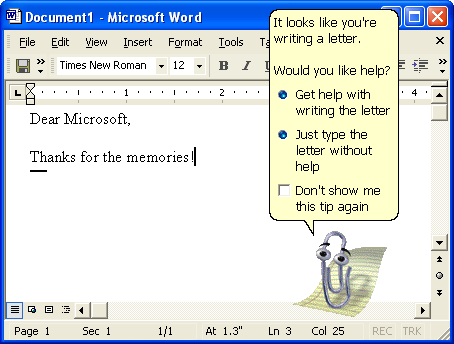 |
Labor of love can break down barriers.
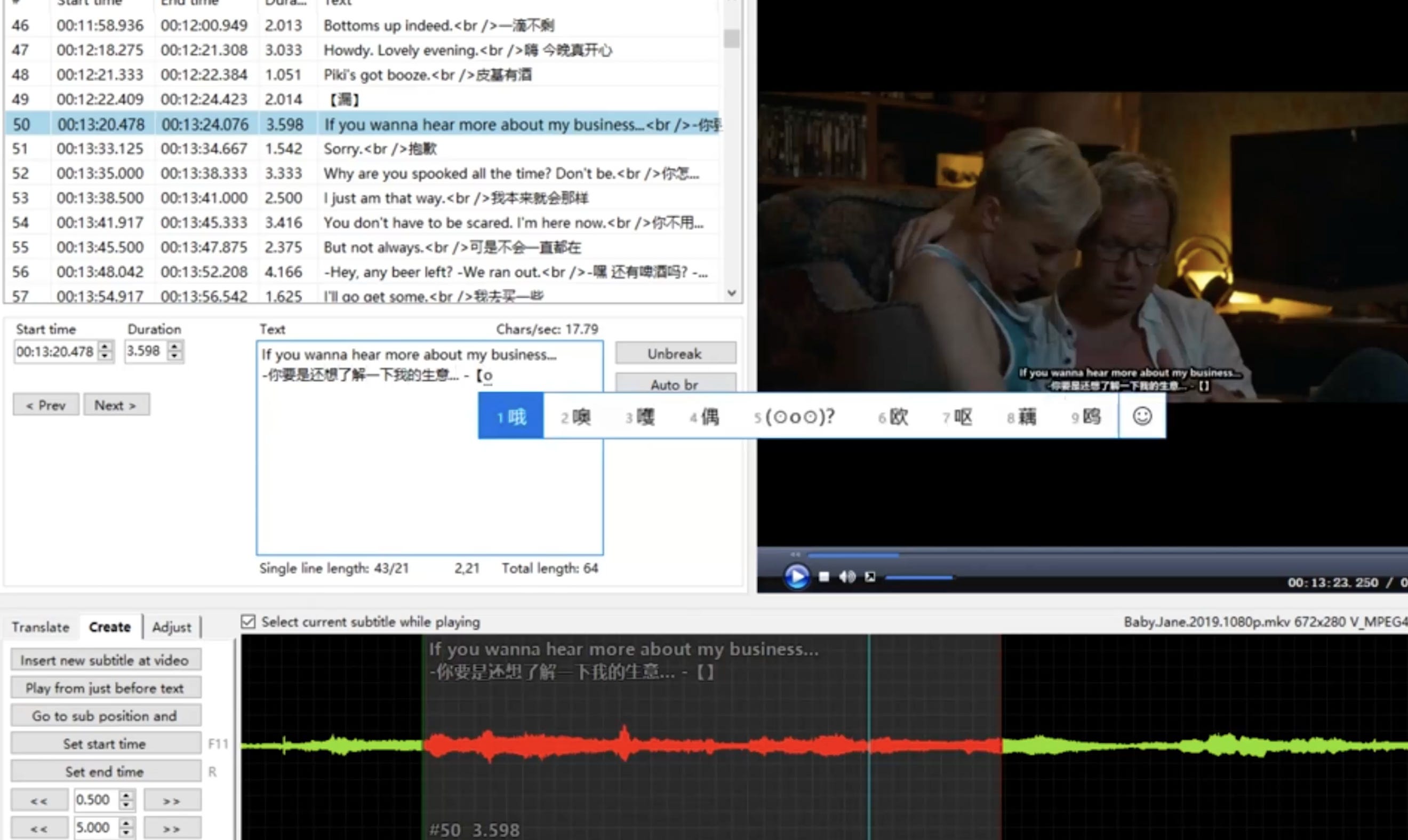 |
QAF, which resembles a cross between Reddit and an early internet chatroom, started out in 2004 as a message board for Chinese fans of the hit American-Canadian show “Queer as Folk” and grew into a forum for LGBTIQ cinema resources. Today, the site has over 700,000 registered users and 60,000 followers on its public WeChat account.
As queer people are rarely represented in mainstream Chinese media, QAF has shown a generation of LGBTIQ people what life can be like in other societies and how to fight for their own right to representation.
Since 2008, coordinated teams of volunteers have translated thousands of movies and TV series, ranging from major studio productions to short films in Hebrew and Vietnamese. Subtitling a movie requires hours of work by a whole team of people. Right now, there are about 120 volunteers. Every time a new movie arrives, QAF volunteers form a one-off group, with each member taking on a specific task. This works like an assembly line: one person will translate, another will synchronize, and others will take on graphic design, subtitle embedding, and uploading.
While there are more LGBTIQ organizations in first- and second-tier Chinese cities, they are typically less accessible to people from small towns. For these people, QAF offers the only means of meeting other queer people.
“A subbing group, to some extent, means connections beyond physical boundaries,” said Xiaoxin, a QAF administrator, who operates under an alias. “No matter if you are from Zigong or Tianshui, or if you’re a college student in Lishui, you can always join us.”
Simulating multidimensionality.
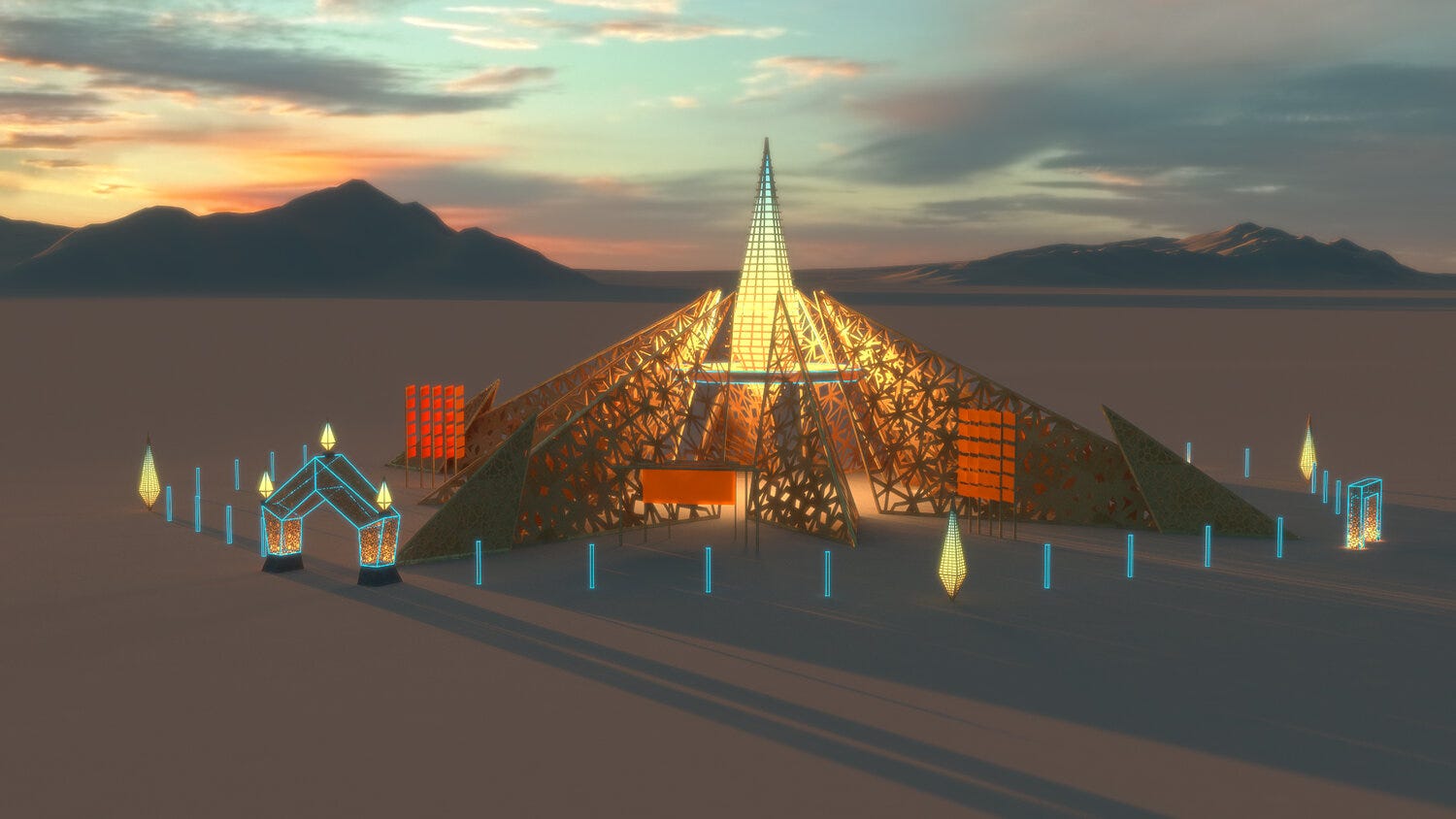 |
I wasn’t surprised when I saw that Burning Man is going digital.
Every year, more than 60,000 people descend on a dusty patch of the Black Rock Desert to erect a small town from scratch, collaboratively shaping it into their version of utopia. COVID-19 has rendered a mass gathering like that unthinkable, but instead off canceling it, they announced "the Multiverse".
The Multiverse is an endlessly expanding virtual Burning Man. Intrepid adventurers are invited to co-create eight Universes, a virtual Temple, and (coming soon!) a globally distributed Man Burn.
I took this straight from the website. As dangerous as this sounds, it does tantalize someone like me who has been pondering what a multi-dimensional experience feels like in the digital world. How do we replicate the five senses through the assembly of pixels?
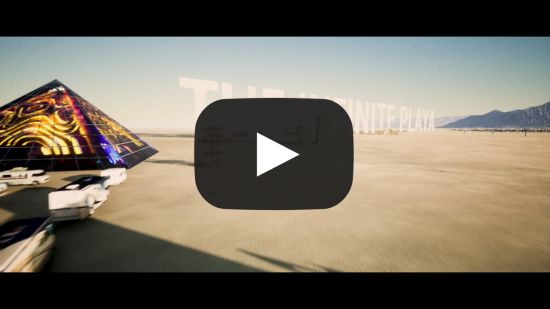
The most exciting thing from this event is the fact that this is very much a crowdsourced experience, as Burning Man always is. Doing it in the digital sphere will open our eyes to the possibilities of artifacts yet to be created.
If you are inspired, you can share general ideas for this new iteration of Burning Man.
And if you have a vision for an event with a live participatory element that also meets the 10 Principles of Burning Man, you can submit your ideas for content.

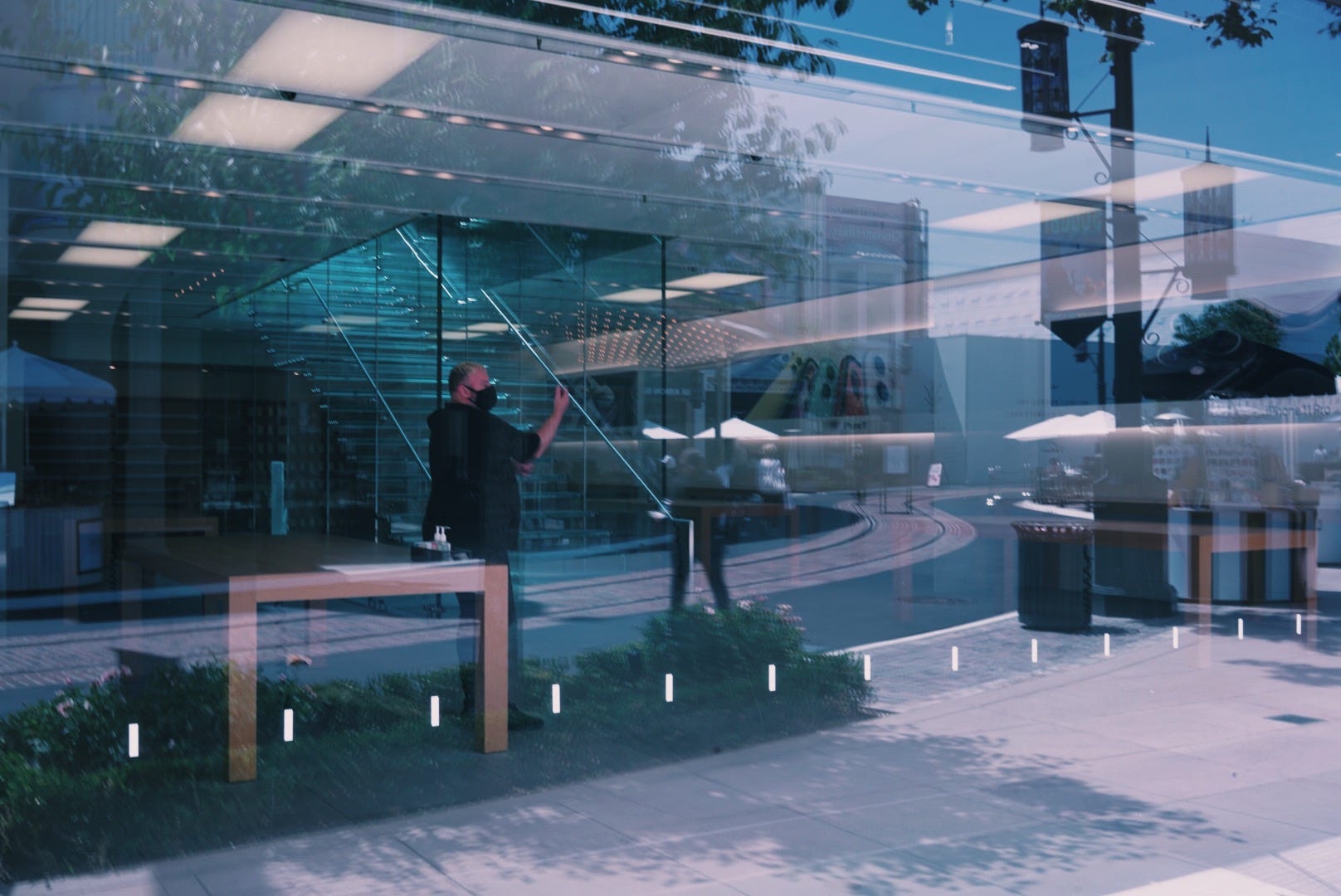 |
Empty Apple store with no one inside, but a man with a mask on, talking on the phone.
I took a trip to LA before I started at Pace. I decided that I wanted to take more original pictures for this section, to capture the fleeting moments that are for once my present and soon will be our collective past.
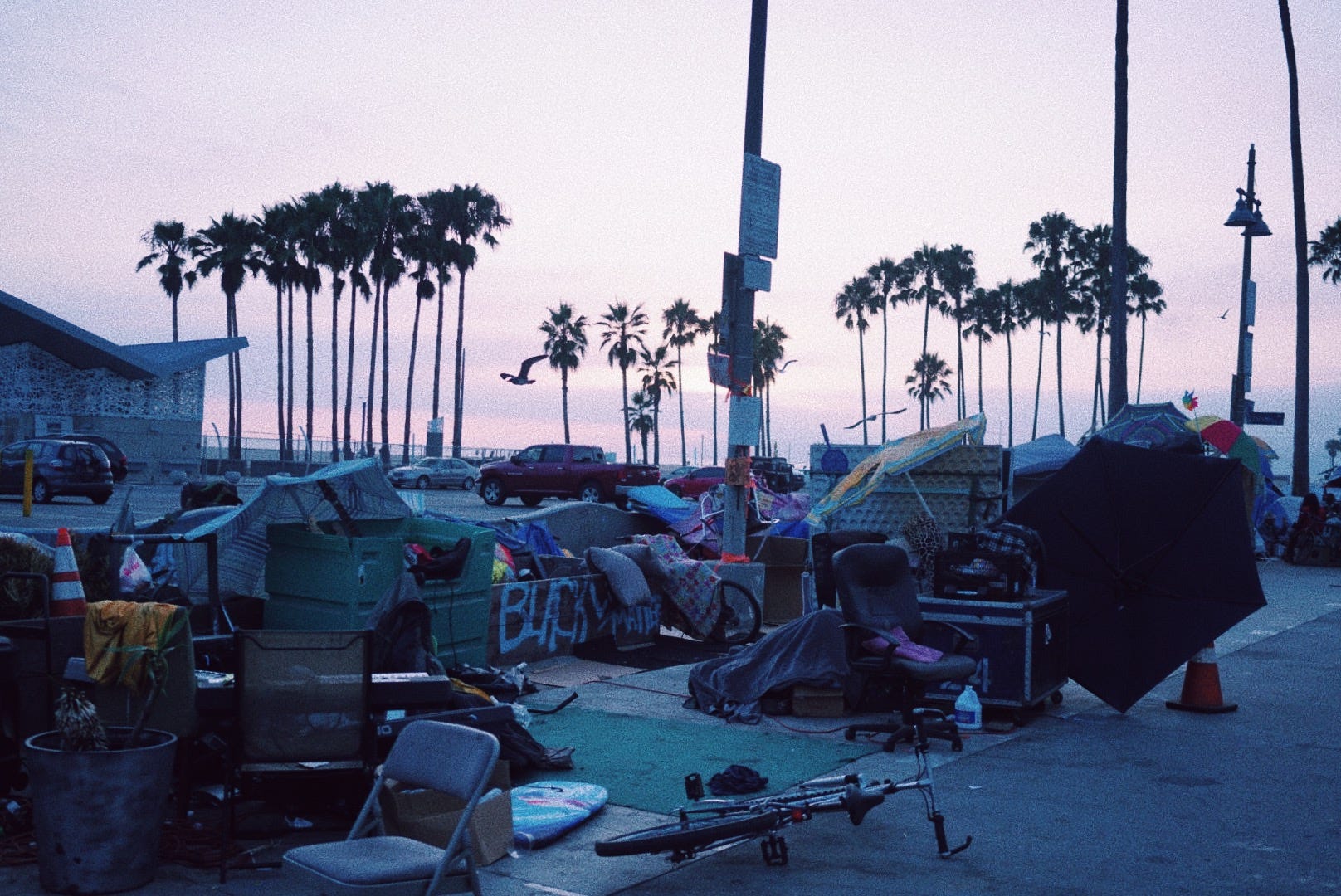 |
Venice, 2020
Venice has been one of my favorite places to visit. I could spend hours with the skaters jumping confidently with the curves. This time the place looks different. Parking lots along the Los Angeles beaches are roped off. Along the boardwalk in Venice Beach, all the businesses are closed. More tents than ever have appeared on the boardwalk and along the streets. More homeless people have come to the area as the pandemic has cut off their usual sources of food and other services, Local church volunteers stopped bringing food, but a lot of people would bring leftover catering food, food from film productions and office conferences. All of that stopped as well.
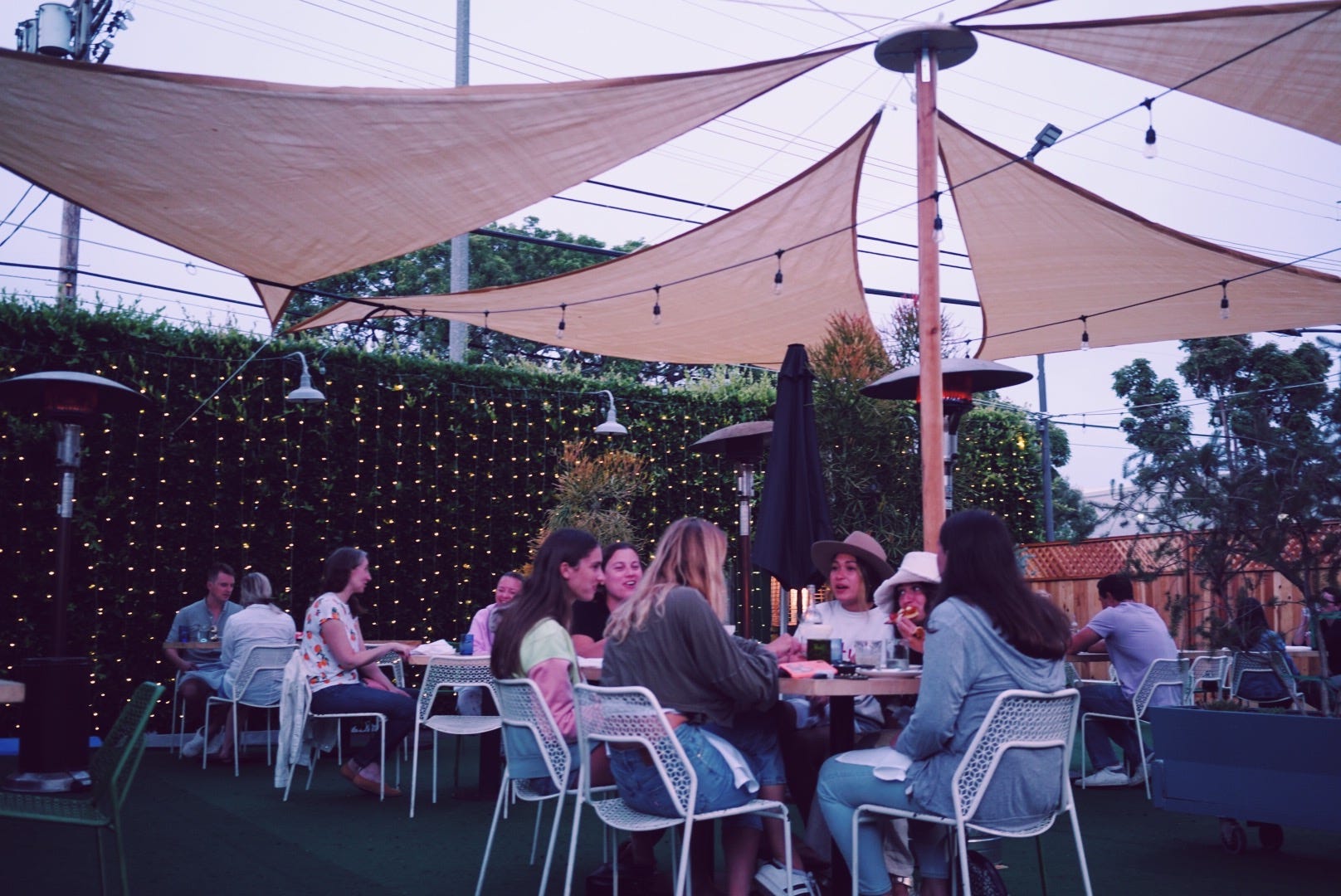 |
Out Door Dining, 2020
The only places that remain vibrant are outdoor restaurants. We went to a restaurant right not far from the beach. The highlighter on girls’ cheeks, the unhinged laughter, and the quirky ingredients on the menu reminded me that I was really in LA.
What is a place that was once familiar to you that has changed over the past months? I’d like to know.

Tools with a thousand faces.
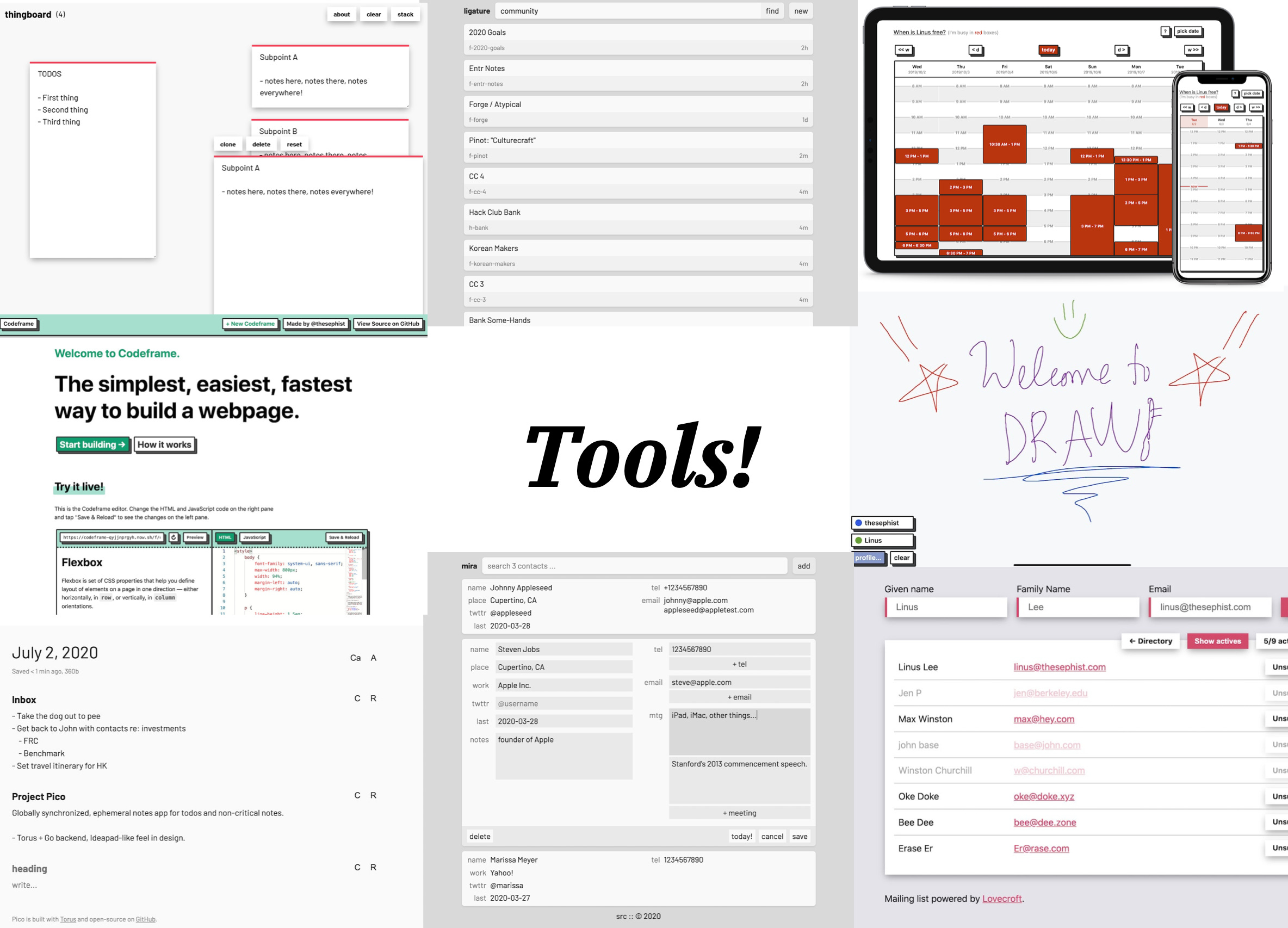 |
With the lowering barrier of creation, tools proliferate at an unprecedented speed. This is net positive, as competition also accelerates innovation. However, it can be disorienting when these tools become the overlords that decide the way we work.
Creative programmer and designer Linus (@thesephist) shared a timely post as a response to this tool fatigue. His main idea is that tools should serve workflows, not the other way around. For the last few years, he’s been on a journey to replace all of the essential digital tools he uses for organizing his life with tools he develops, maintains, and deploys himself. It costs him $6 per month to host these lil software on Digital Ocean. He wrote in his blog post:
My biggest benefit from writing my own tool set is that I can build the tools that exactly conform to my workflows, rather than constructing my workflows around the tools available to me. This means the tools can truly be an extension of the way my brain thinks and organizes information about the world around me. My tools aren’t perfect yet, but as they grow and evolve, they’ll only become better reflections of my personal mental models.
His post inspires a series of questions that I’m chewing on:
For individuals, how much of how we work has been defined by the tools we use? How can we rediscover our workflow that optimizes outcomes, not just output?
For tool designers, how can we create tools that are more customizable and can be remixed to an individual’s preference and be adaptive based on context? What if one tool can have a thousand faces?
For business builders, as the infrastructure to create software becomes more democratized, how can we create verticalized channels of discovery and education for everyone to pick up the tools that are the most intuitive for the groups’ needs?
What are your favorite tools now? How much customization do you perform to make the tool fit your unique workflow? I would like to know.

New Idea // 138,462 Carbon Pyramids
Could a Keynesian “pyramid scheme” establish a “viable planetarity” by re-orienting the forces of global labor to address the climate crisis? With a dose of irony, the design inquiry of building 138,462 Carbon Pyramids imagines what it would mean—for labor, economies, and landscapes—to translate an abstract figure into a real carbon management solution.
This piece touches on so many sweets I’ve been chewing on — Keynes, design, climate, wild ideas. This is possibly speculative non-fiction at its best, and we should all be doing more of these exercises. After reading, I hear myself asking: why the hell not? 🤷🏻♀️
Long Form // Long Haulers
Support groups on Slack and Facebook host thousands of people […] who say they have been wrestling with serious COVID-19 symptoms for at least a month, if not two or three. Some call themselves “long-termers” or “long-haulers.”
Ed Yong wrote an impactful piece on The Atlantic, shedding light on a group of people that weren’t taken seriously before. To follow up, he created a newsletter to send updates to his readers who want to follow this story closely:
Early pandemic mistakes are still costing long-haulers dearly. Testing screw-ups in February and MArch meant many never got tested; in August, that means many are still being gaslit, and can’t get into post-covid clinics.
He speaks up about the important role that the media plays to tell the stories of those who need to be heard:
…Media coverage means more long-haulers are finding docs who know about them & take them seriously. I can’t overstate the difference that makes. “If you listen to the population you’re trying to help, they’ll tell you what’s wrong,” one doc said.
Short Story // Sweet Scoudrel
A child wasn’t so bad. She’d always thought she’d have a child, just like she’d thought she’d get married, too. This year she would turn twenty-six. If she had stayed in the village, she’d probably have two kids clinging to her already. In the city, there were years of good money left. Pregnancy was like early retirement. No lotions or procedures could save you after that. But she was taken care of, supposedly. Robert was a good man. A good investment.
Diana’s story covers nine months, two cities, and four characters. Tiantian, in her mid-twenties and from a rural village, works at a KTV in Beijing. There, she meets Robert, whose wife and daughter live conveniently far away in Boston. Robert and Tiantian begin a relationship, and, by the first paragraph of the story, Tiantian is pregnant. It’s a story about commitment, about maintaining many lives in different cities, about investments and economics of love.
🍳 Bonus: A gun that shoots out masks — a dream comes true!

Fakepixels is a space for courageous thoughts. We believe in the power of deep thinking, nuanced dialogue, and creative courage. By being present with the world and with each other, by learning relentlessly, and by bridging knowledge across realities. We’re here to dream and agitate and question openly and unapologetically. We’re here to be vulnerable, honest, and true.
If you are interested in contributing or being a part of it, I would love to have you join the club. I decided to open-source the structure of the newsletter, and if you see anything that fits into any of these sections, sharing is loving.
I’m taking my time to get to know each of you, and I do this on nights and weekends. Appreciate your patience in advance. Until then, why don’t you bring a friend?

